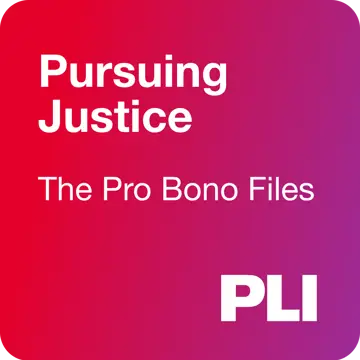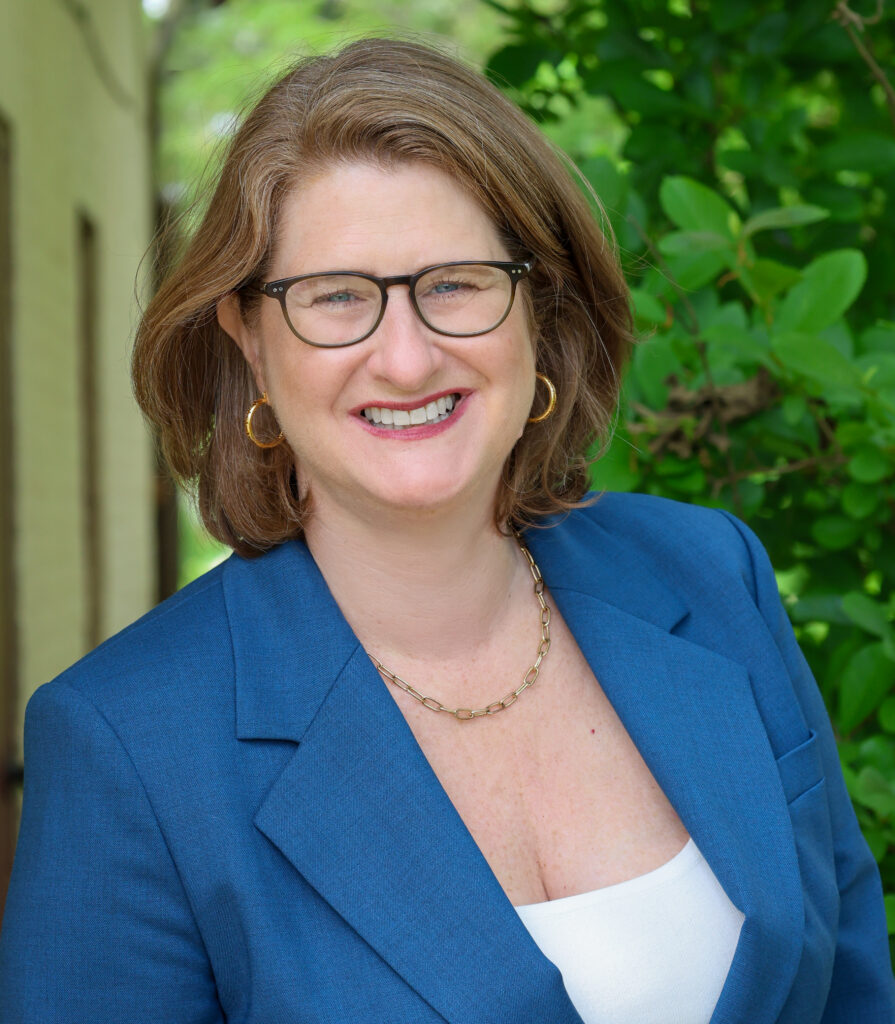For over six years, Practising Law Institute’s podcast Pursuing Justice: The Pro Bono Files has shared stories of the legal community giving back. Through interviews with lawyers, advocates, and clients, host Alicia Aiken explores the vast array of pro bono work being done today — inspiring and preparing others to get involved.

What brought you to the podcast and what keeps you motivated?
I was already a faculty fellow at PLI, working on interactive, on-demand programs, when JC Kinnamon, the head of Research and Development, spoke with me about trying something different. We began working with Daniel Painitz, our producer, and talking about what would contribute to the conversation. We landed on telling stories about lawyers volunteering their time, using their legal skills to help people.

There are still a million stories to be told; every time I think, maybe we’ve told it all, someone else will reach out and describe something else they’re doing — a new law that passed that they’re working on, a new project, a new need that’s been identified, or someone in a part of the country we haven’t covered.
How has the podcast expanded your view of pro bono work?
It’s been really enjoyable to meet people from different areas of the law who share the same passion for pro bono. Though I’ve been a lawyer in legal aid, civil rights, and criminal defense, I’ve never been a corporate lawyer. But through Pursuing Justice, I’ve discovered that I love talking to transactional lawyers about projects like their pro bono small business clinics, and sharing the stories about the impact that they can make doing that work.
Doing this podcast has opened up my imagination to a wider variety of pro bono opportunities, from our episode on serving on the board of a nonprofit, to the variety of clinics that represent artists or veterans, or work being done in Houston on disaster relief, or the lawyer who teaches free courses to entrepreneurs from a very low-income neighborhood in Detroit. Of course, we also tell the stories about dramatic wrongful convictions, exonerations and clemency, fighting for clients in court — it’s a wide spectrum and I’m always learning.
Who would you say your intended audience is? What kinds of stories resonate with them?
We envisioned the podcast for lawyers at any point in a pro bono journey, just helping them move ahead one step. So for a lawyer who’s never done pro bono, we want the stories to be interesting enough that they’ll hear it and think, maybe this is a thing I could do. For lawyers who already do pro bono, who may feel like their contributions don’t always get seen, getting to hear stories about others doing similar things kind of pumps them up and reminds them why they do it. We also have listeners who are not lawyers, but simply appreciate volunteerism. Above all, what continues to resonate is: What does it mean for people to devote their time and their expertise to help someone who they didn’t already know, who is different from them?
You also continue to work on award-winning programs for PLI’s Interactive Learning Center. How do your roles interact?
My role as faculty fellow with PLI gives me the opportunity to think creatively, in collaboration with our terrific R&D team, about what lawyers need and how they learn. PLI is all about innovation, so they’re constantly looking for ideas, both to experiment with form, and to ask, ‘What content doesn’t exist in the world, but should?’ Often this is about the human side of lawyering, working with clients whose backgrounds, income, or education may be different from yours, and making connections to represent them effectively.
We recorded a podcast episode on-site at a legal clinic in Chicago a few years ago, which inspired me to volunteer more of my own time at clinics. And after a while, JC asked me for thoughts on updating our Introduction to Pro Bono programs, and I suggested a program on clinics. We just finished filming it this summer, and in a few months PLI will be offering this new interactive course on how to lawyer in a walk-in pro bono clinic. One of the examples we use in the course is drawn directly from the conversations we recorded for that episode! That’s a perfect example of the constant cross-pollination between those roles. Frankly, it’s been one of the joys of my career to get to do all of these projects with PLI.
As lawyers, we can tend to be both extroverts and perfectionists, and so we will rush into a room to solve a thing, but we want to get it right. The idea of volunteering to do something when you don’t know what right looks like can be terrifying, and I think it holds people back. Many of the courses that I do with PLI are designed to teach people about the human part of this work, and what doing it well looks like, so that they can feel confident about running into the room to help.
Why do you think it’s important for people to do pro bono?
We all agree that it’s an ethical and moral duty of the legal profession and has been for a long time. You challenge yourself, you develop new skills — all of this has been said many times before.
For me, in this moment, I think there is so much in our society that is designed to isolate us. Brian Stevenson of the Equal Justice Institute talks about the importance of proximity to a problem and to the people who are experiencing it. And doing pro bono is a way to get proximate — it connects you to your community, to your humanity. It helps you understand what’s really happening, in a way that immediately gives you an opportunity to contribute. So it’s not just learning about an issue in isolation while you’re doomscrolling and feeling terrible about it. You’re learning about it in an environment where you can take action to try to improve it.
I do think that how we spend our time is our values, and if you value community, you value meeting your ethics requirements, you value pushing yourself to learn and be better, then you will value all of those things enough to find the time to do pro bono. What’s great about pro bono today is the wide variety of options, and firms are doing a phenomenal job of building pro bono infrastructure to support and expand this work.
Learn more: Stream all episodes of Pursuing Justice: The Pro Bono Files any time at no cost, and visit PLI.edu/probono for an array of pro bono-related programs and other resources, including programs on microentrepreneurship and ethics available for free during Pro Bono Week.